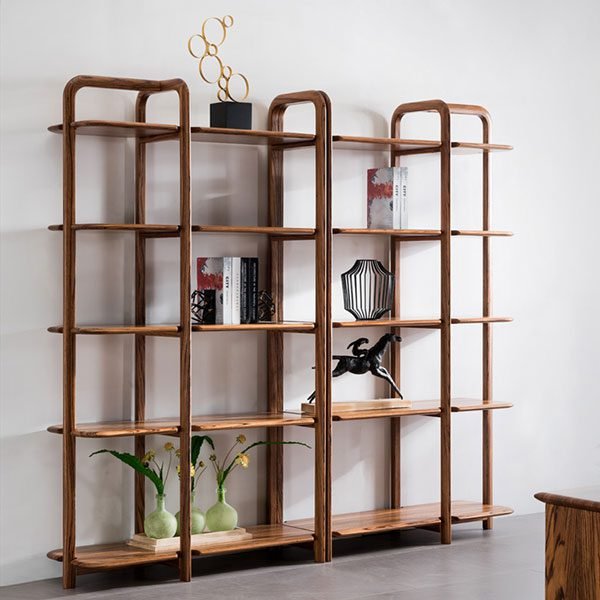“Compliance is key for importing bedroom furniture into the US & EU.”
Tariffs on Bedroom Furniture Imports
When it comes to importing bedroom furniture into the United States and the European Union, there are specific regulations and tariffs that must be adhered to. These regulations are in place to protect domestic industries, ensure fair competition, and maintain quality standards for imported goods. Understanding these regulations is crucial for importers looking to bring bedroom furniture into these markets.
In the United States, the import of bedroom furniture is subject to tariffs imposed by the U.S. government. These tariffs are designed to protect domestic furniture manufacturers from foreign competition and ensure a level playing field for all companies operating in the market. The tariffs on bedroom furniture imports can vary depending on the country of origin and the type of furniture being imported.
For example, the U.S. government has imposed tariffs on bedroom furniture imports from China in recent years as part of an ongoing trade dispute between the two countries. These tariffs have had a significant impact on the cost of importing bedroom furniture into the United States, making it more expensive for companies to bring their products into the market.
In addition to tariffs, importers of bedroom furniture into the United States must also comply with other regulations, such as safety standards and labeling requirements. These regulations are in place to protect consumers and ensure that imported furniture meets certain quality standards. Failure to comply with these regulations can result in fines, penalties, or even the seizure of imported goods.
In the European Union, the import of bedroom furniture is also subject to regulations and tariffs. The EU has its own set of rules and standards that importers must adhere to when bringing furniture into the market. These regulations are designed to protect consumers, promote fair competition, and ensure that imported goods meet certain quality standards.
Like the United States, the EU imposes tariffs on bedroom furniture imports from certain countries to protect domestic industries and maintain a level playing field for all companies operating in the market. Importers must be aware of these tariffs and factor them into their pricing and business strategies when importing furniture into the EU.
In addition to tariffs, importers of bedroom furniture into the EU must also comply with other regulations, such as environmental standards and labeling requirements. These regulations are in place to protect the environment, promote sustainability, and ensure that imported furniture meets certain quality standards. Failure to comply with these regulations can result in fines, penalties, or even the seizure of imported goods.
Overall, importing bedroom furniture into the United States and the European Union requires careful planning, compliance with regulations, and an understanding of tariffs. By following these regulations and tariffs, importers can ensure that their products meet the necessary standards and are able to compete in these markets. Failure to comply with these regulations can result in financial losses, reputational damage, and legal consequences. Therefore, it is essential for importers to be aware of and adhere to the regulations and tariffs governing the import of bedroom furniture into these markets.
Compliance with Safety Standards for Bedroom Furniture
When it comes to importing bedroom furniture into the United States and the European Union, there are strict regulations that must be followed to ensure compliance with safety standards. These regulations are in place to protect consumers from potential hazards and ensure that the furniture being imported meets certain quality and safety requirements.
In the United States, the Consumer Product Safety Commission (CPSC) is responsible for setting and enforcing safety standards for bedroom furniture. This includes regulations on flammability, lead content, and other potential hazards. Before importing bedroom furniture into the US, it is important to ensure that the furniture meets all CPSC safety standards.
One of the key regulations that must be followed when importing bedroom furniture into the US is the flammability standard. This standard, known as 16 CFR 1633, sets requirements for the flammability of mattresses and mattress sets. In order to comply with this standard, imported bedroom furniture must undergo testing to ensure that it meets the specified flammability requirements.
In addition to flammability standards, imported bedroom furniture must also comply with regulations on lead content. The CPSC has strict limits on the amount of lead that can be present in bedroom furniture, as lead exposure can have serious health implications. Before importing bedroom furniture into the US, it is important to ensure that the furniture meets all lead content requirements set by the CPSC.
In the European Union, bedroom furniture must also meet strict safety standards in order to be imported and sold. The EU has regulations in place to ensure that imported furniture meets requirements for safety, quality, and environmental protection. Before importing bedroom furniture into the EU, it is important to ensure that the furniture meets all relevant EU safety standards.
One of the key regulations that must be followed when importing bedroom furniture into the EU is the General Product Safety Directive. This directive sets requirements for the safety of consumer products, including bedroom furniture. Before importing bedroom furniture into the EU, it is important to ensure that the furniture meets all requirements set by the General Product Safety Directive.
In addition to the General Product Safety Directive, imported bedroom furniture must also comply with regulations on chemical content. The EU has strict limits on the amount of certain chemicals that can be present in consumer products, including bedroom furniture. Before importing bedroom furniture into the EU, it is important to ensure that the furniture meets all chemical content requirements set by the EU.
Overall, when importing bedroom furniture into the United States and the European Union, it is important to ensure that the furniture meets all relevant safety standards and regulations. This includes compliance with flammability standards, lead content requirements, and other safety regulations. By following these regulations, importers can ensure that the bedroom furniture they are importing is safe and meets all necessary quality standards. Failure to comply with these regulations can result in fines, recalls, and damage to a company’s reputation. Therefore, it is essential to carefully review and adhere to all safety standards when importing bedroom furniture into the US and EU.
Environmental Regulations for Bedroom Furniture Imports
When it comes to importing bedroom furniture into the United States and the European Union, there are a number of regulations that must be adhered to in order to ensure compliance with environmental standards. These regulations are in place to protect the environment and the health of consumers, as well as to promote sustainable practices within the furniture industry.
In the United States, the Environmental Protection Agency (EPA) is responsible for regulating the import of bedroom furniture. The EPA has strict guidelines in place to ensure that imported furniture meets certain environmental standards, such as restrictions on the use of certain chemicals and materials that are harmful to the environment. For example, the EPA has regulations in place to limit the amount of formaldehyde that can be used in the production of furniture, as formaldehyde is a known carcinogen and can have harmful effects on human health.
In addition to restrictions on chemicals, the EPA also has regulations in place to ensure that imported furniture meets certain sustainability standards. This includes requirements for the use of sustainable materials, such as wood that has been harvested from responsibly managed forests. The EPA also encourages the use of recycled materials in the production of furniture, in order to reduce the environmental impact of manufacturing.
In the European Union, the regulations governing the import of bedroom furniture are even more stringent. The EU has a number of directives in place that are designed to promote sustainable practices within the furniture industry, as well as to protect the health of consumers. One such directive is the Timber Regulation, which prohibits the import of illegally harvested timber into the EU. This regulation is aimed at combating deforestation and promoting responsible forestry practices.
In addition to the Timber Regulation, the EU also has regulations in place to limit the use of certain chemicals in the production of furniture. For example, the EU has restrictions on the use of certain flame retardants that are harmful to human health and the environment. The EU also has regulations in place to ensure that imported furniture meets certain energy efficiency standards, in order to reduce the environmental impact of manufacturing and transportation.
Overall, the regulations governing the import of bedroom furniture in the United States and the European Union are designed to promote sustainability and protect the environment. By adhering to these regulations, importers can ensure that their furniture meets certain environmental standards and is safe for consumers. Importers should be aware of these regulations and work with suppliers who are committed to sustainable practices in order to ensure compliance. Failure to comply with these regulations can result in fines and other penalties, so it is important for importers to stay informed and up to date on the latest environmental regulations for bedroom furniture imports.
Conclusion
In conclusion, both the US and EU have regulations in place for importing bedroom furniture. These regulations aim to ensure the safety and quality of products entering the market, as well as to protect consumers from potential hazards. It is important for importers to be aware of and comply with these regulations to avoid any legal issues and ensure the smooth importation of bedroom furniture into both regions.



